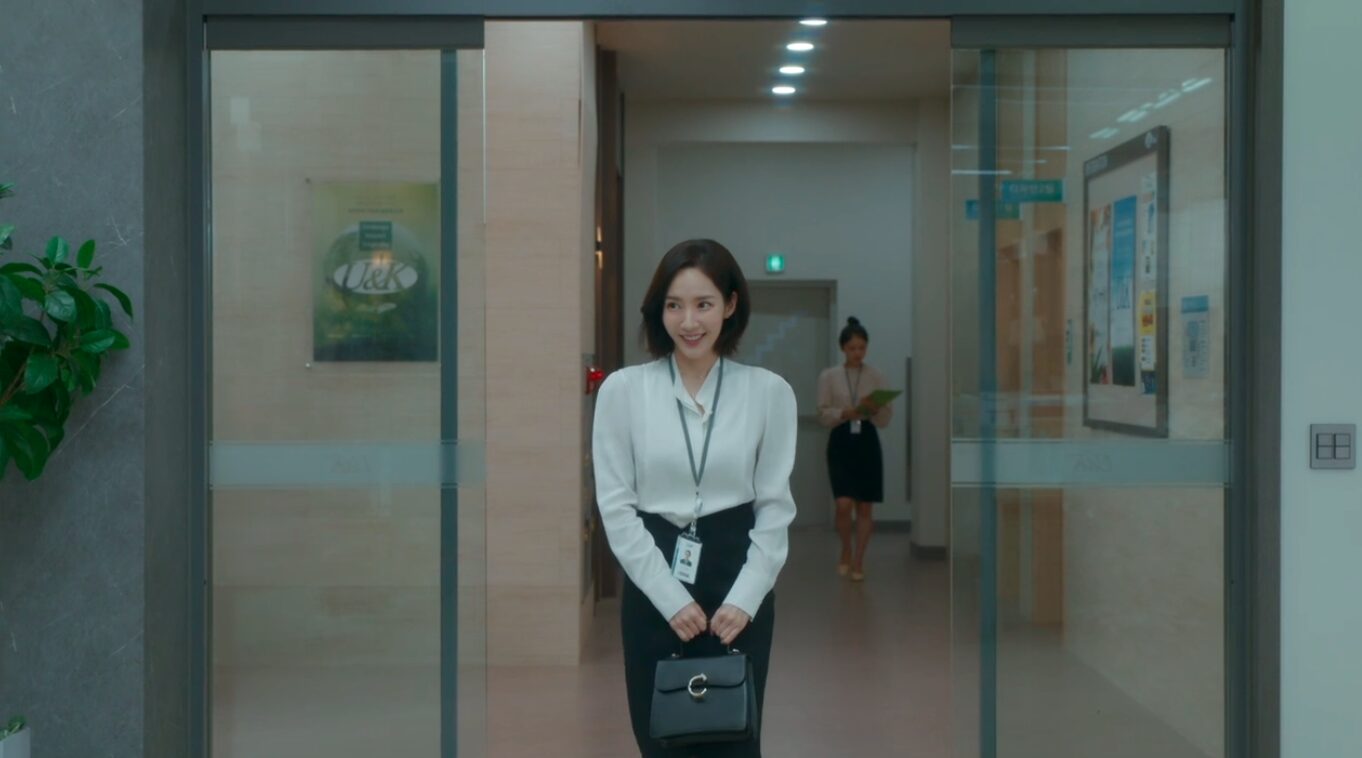I was only a teenager when my grandmother died of stomach cancer.
It’s a terrible illness; an agonising, dehumanising gnawing blight that eats you alive from the inside.
By the time my grandmother consented to even go to the doctor for her symptoms, the cancer was so advanced she had only six weeks left to live. Those six weeks were a torture for her children forced to provide palliative care while they watched her slowly die.
The hospital installed a morphine dispenser at their house, one that would only drop the required dosage at the required time. No more and no less. And yet by the end, my mother and Aunt teamed up to attack it; to tear if off the wall so they could give their mother the overdose they believed she deserved to end her suffering.
“Just give her more,” they begged the doctor, “she is in so much pain”.
“If I do that, it will kill her,’ he replied, matter-of-factly.
To this day my mother and Aunt fail to understand why that would be a bad thing. Her death was a matter of days anyway.
And yet, like the millions of people in the world caring for relatives that are sick or injured, they wouldn’t have said they wanted their loved one to die. They wanted the pain to stop, they wanted things to go back, they didn’t want the deep cutting absence of death. Not if given a true choice. But our ability to keep the body alive means that this vicious and unyielding conflict plays out within carers – sometimes for years on end.
When the choice is between suffering and death – or to be less euphemistic, between suffering and killing – then anyone who has had the endless, grinding and demoralising experience of caregiving can tell you that the desire for the situation to end wars endlessly with the knowledge of what that ending is and must inevitably be.
Your loved one is never coming back. That is a fact as blunt and inarguable as the laws of the universe themselves. Wanting the situation you’re in to be over means wishing for their death and yet no one who’s a carer wants to lose somebody they love. It’s a cognitive dissonance that jars inside you.
On a societal level, this unresolvable tension becomes a larger question of balancing lives. Is it a child’s responsibility to care for a parent? A wife for a husband (or vice versa)? To what extent? For how long? Is a year too long? Five? A decade?
Caregivers – to step on my ending – are not robots. They have their own physical, mental and emotional needs and subsuming those needs for long periods can be incredibly destructive.
At what point does the State step in or do they leave it to individual families and uncaring corporations? And at what point is the family member driven to the edge?
These questions underpin the first story in Korea’s new groundbreaking science fiction series, SF8. Known colloquially – but as it turns out accurately – as Korea’s Dark Mirror, SF8 constitutes the first pure science fiction endeavour from Korea. And if the quality of The Prayer is any indication, they’re about to make their mark on the genre in a powerful way.
The Plot
In a future where medicine is keeping people alive long after they would normally have passed, caregiver robots have been created that look like the patients’ loved ones. As nursing hospitals replace schools and people go into debt to buy the expensive caregivers, the show examines the lives of two families each able to provide only palliative care to an ill member of their family.
Like most robot stories, The Prayer isn’t about futuristic palliative care or even about robotics. It is instead about the nature of humanity. Grounded in the story of Cain and Abel and the question, “Am I my brother’s keeper?”, it asks some big questions about what it means to care for somebody and the limits and boundaries of that responsibility.
There is an obvious religious aspect to The Prayer that I originally found off-putting, and a peculiarly Catholic bent as well. Approximately 10% of the Korean population are Catholic and in a country that is still mostly Buddhist it represents a large religious minority – but certainly not the largest. Still, as we’ve seen in the US where the majority of people are Protestant, Catholic imagery nonetheless plays a disproportionate role in television.
But if you dig past the overt religious imagery and see a prayer as a cry for help then the analogy works, especially as the episode challenges the simplicity of many religious positions on death and dying.

As The Prayer opens, Sister Sabina (an always-impressive Ye Soo-jung) talks about the blood of Abel spilt upon the ground as we see fluid that turns out to be urine spill into a receptacle. It’s a shot that grounds the show in the phsyical, the body that’s broken down. We can talk about the soul all we want but caregiving is about blood and piss and shit and the endless recurring needs of the body.
The fluids belong to the prone body of the comatose mother of Yeon Jong-in (Lee Yoo-young) who has been in that bed for a full decade. The silent body that needs constant tending is in a room on a floor of rooms in a building of floors in a city of buildings – each room with a family trying to care for a loved one who is never going to recover.

In the room next door, Choi Jung-gil is struggling with the care of her husband who has dementia. In this way, the show contrasts the two kinds of struggle that can come with long-term caregiving. The child whose life is put on hold to care for a parent, the spouse who has lost their partner in all material ways but still has to care for them.
Sister Sabina prowls these halls offering her ineffectual assistance, handing out stickers with a number for family members to call if they need help.
There’s a claustrophobia to The Prayer, a feeling of being trapped. A feeling that the world has melted away and all that is left is that room, that enclosed space of duty, of responsibility, of endless and unending suffocating need.

A German corporation has ostensibly created some help for people caring for their families. And one that allows them to feel as though they’re still meeting their familial obligations, something that is particularly vital in the Korean context. Caregiving robots now exist that can be made to resemble members of the patient’s families but they are extremely expensive and families are bankrupting themselves to get the help they need.
The robots themselves, in all their glossy glory, are redolent of the brutal and uncaring nature of privatised healthcare and corporatisation of nursing homes. Jung-gil sold her home but could still only afford the basic package. Her robot – styled to resemble her husband’s mother – can barely perform basic tasks and her cries of pain and desperate need for help are ignored: by the system, the corporation and by her neighbours who are too busy with their own family members.

Am I My Brother’s Keeper?
It is no exaggeration to say that Lee Yoo-young is transcendent in The Prayer playing dual roles as Yeon Jung-in and her robot double Gan Ho-jung. Jung-in’s printing business has fallen victim to modernity. She is struggling with middle age questions of failure and purpose as her mother lies in a vegetative state with her doppelganger Ho-jung looking over her.
But Ho-jung has also been programmed to care for Jung-in as well and, after a possible system error, she decides that looking after the daughter requires the death of the mother. A woman unconscious for a decade versus the life of her daughter? Is it a cold decision of brutal logic or something else?
Is Ho-jung suffering from a cognitive failure or an emotional awakening? Is she malfunctioning or gaining sapience? Is this an emotional decision or a logical one? Can she feel and if she can are those feelings something she should act on? Is her desire to care for Jung-in a selfless act of consideration or has she developed needs and wants of her own that she doesn’t have the programming to process?

“I know how Yeo Jun-in feels,” she says at one point and yet we’re left wondering what that means. Does it mean she has observed her pain and wants to alleviate it? Or does it means she truly feels the potential loss of her loved one? Is she trying to save her patient, Jun-in, or simply trying to keep her as a part of her life? Is her selflessness actually the selfishness we know that caring can be?
Do we care for our loved ones because we want to help them or do we do it because we don’t want them to leave?
While in the grips of her dilemma, Ho-jung calls Sister Sabina. It is in many ways a cry for help, a prayer to a higher power and yet all the Sister can offer is platitudes and cliches. It is in this juxtaposition of simplistic moral messages and the reality of the logic conflict all carers are living with that the show canvasses its themes. The jarring clash of simplistic moral messages like “thou shalt not kill” and “God will fix everything”, and the deeply complex and emotionally fraught issues we have around long-term palliative care, chronic pain, family responsibility, and the desire for love and care to be requited.
Prayer, Sister Sabina explains, is when we talk to God about our problems and everything turns out well.

“For whom?” Ho-jung asks in response, “For whom does it turn out well?
The family? The patient? The caregiver? After sevens years as a carer, Ho-jung knows what Sister Sabina should but doesn’t seem to. This situation can never turn out well for everybody. At some point, something has to give.
And yet as an outsider, Sister Sabina becomes every one of us who observes what’s happening and either acts or fails to act. To what extent therefore are we all responsible for the events of The Prayer? What if all of humanity is our brother or sister? What if these small stories of personal pain and loss are the responsibility of us all?
And in its dark and disturbing ending, The Prayer doesn’t give us any relief from these existential questions, instead offering up yet another dimension to the endless quest to balance what’s right with what’s human.

Dark, off-kilter, often out of focus and kaleidoscopic, the characters in The Prayer are often presented as distorted and unhuman, whether they’re robots or not.
Like the best of science fiction, The Prayer never answers the questions it relentlessly raises. In the end, The Prayer simply asks. It is up to us to decide if we can answer.




Oh, I have so much to say about this but I find I can’t. I’m sorry your grandmother had to suffer. No one should be denied a release from pain, especially when it is their last moments. And no one should have to witness that. We were fortunate that the hospice nurse and doctor were honest with us, that giving more morphine would make him more comfortable but also shorten his time. I gave him more, and I would do it again and again.
I haven’t watched this, and I’m not sure I can yet, but I think the premise and narrative you written about here is interesting, What is the purpose palliative care, and what is the cost to those who provide it? The claustrophobic grinding pressure of it all is immense, and who or what can relieve that? And it’s no accident that this is a story of women wrestling with the cold and insufficient assistance of a corporate healthcare system, and the meaningless platitudes of religion.
Honestly, this one hit a little too close for home for me as well. I could easily have structured the introduction around my mother, for whom my father has been caring for the past five years. The example would be far more apropos – my mother may be half paralysed and have the cognition of a child but she is not dying and five years could easily become ten. And yet for some reason that was too difficult and so I chose the example more disconnected from myself. It just goes to demonstrate how close to home these questions fall.
While we have a social problem with expecting family members to be robots who can unendingly care for their loved ones, I’m not sure there is a solution to the problem – although well-funded and compassionate palliative care would help a great deal. Still, I suspect the cognitive dissonance caused by the situation is not something anyone can help with. But I am grateful that there is something out there at least asking those questions.
It’s been over two weeks now since I watched The Prayer and I have to say it’s still with me. It really was almost perfect.
Like egads, I don’t think I can watch this either, because the story hits to close to home. My father and I had to go through this for my mum. She stayed for 3 months in pain before one morning, after a last night I spent alone with her in her hospital room (hospices have not become mainstream here yet), we had the difficult conversation with the doctor. Like your mother and aunt, my father and I had no doubt in our minds. I like to think my mother didn’t either. I never got to ask.
In the preceding weeks, everyone in my family suddenly turned deeply religious, visiting every temple, priest and astrologer, as though empty words and chants could offer some solace. As an agnostic, I could not then, and cannot now, quite understand why they did that. My mother, who was a scientist, and a geneticist at that, spent her time grappling with a sudden inexplicable desire to return to her long-abandoned faith (for what she thought would give her some kind of comfort) and the clinical rationality of her disciplinary upbringing (which told her – through. her own reading of her reports – that she would go through pain before her end). I can only imagine the dilemma that she would have gone through.
The law in my parts changed soon after, which means now you can write a ‘living will’ for carers and medical professionals to act upon should you ever find yourself in such a position – essentially, permitting euthanasia if certain conditions are met. Such laws trigger a different kind of debate, by introducing individual agency, and giving a new spin on communal responsibility. I wonder if the show touched upon these questions, or would it have been too radical for a deeply religious society like Korea.
I’m so glad I found this comment in the spam filter! WordPress’ algorithm gets it very wrong sometimes.
Tbh, as I said to egads above, there is a more apropos example in my life – my mother. And the fact my father has spent the last five years changing her nappies, feeding her and having to cope with her cognitive issues. And I’ve been a part of that too but not to his extent. But since the show is built around the carer’s decision to kill her patient I just… couldn’t write that.
The show is not actually about euthanasia so much as the logical conflict at the heart of palliative care. That you want the situation to end but the only way it ends is with death. So you find yourself at any given moment of the day both wishing for your loved one’s death while desperately fearing it. It’s a cognitive dissonance I struggle with myself and so once I peeled back The Prayer’s enigmatic layers it spoke to me. Even with the religious imagery.
I think the only way the show got away with it in a Korean context is by having the robot avatar of the daughter have the crisis, rather than the daughter itself. (Although it works very well if you look at the cognitive dissonance as a logic failure).
I don’t think Korea is ready for the idea of children killing their parents, even with the parents’ consent.